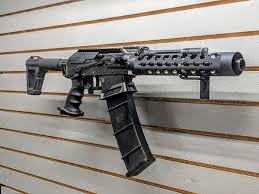
The Role of the Judiciary in Interpreting the NFA
The national firearms act (NFA) is an essential piece of legislation in the United States that regulates the ownership, transfer, and manufacture of certain types of firearms and firearm accessories. In 1934, the NFA was one of the first federal laws to enforce strict control on specific types of guns and has had a significant impact on gun ownership and regulation across the nation.
Background and Purpose
The NFA was introduced in response to the increasing criminality that was a result of organized crime in the Prohibition timeframe. The principal goal was to curb the widespread use of firearms like machine guns and sawed-off shotguns, which were commonly employed in criminal activity. Through the imposition of heavy taxes and strict registration conditions, the government was aiming to restrict the use of the weapons.
Key Provisions
The NFA encompasses a variety of categories of firearms and accessories, including:
Machine Guns: Fully automated firearms capable of continuous firing with a single trigger pull.
The Short Barreled Rifles (SBRs): Rifles with a barrel length less than 16 inches or an overall length that is less then 26 inches.
Short-Barreled Shotguns (SBSs): Shotguns with a barrel length less than 18 inches, or an overall length less than 26 inches.
Suppressors (Silencers): Devices that are designed to cut down the sound of a gunshot.
Destructive Devices: This includes bombs, grenades, and other explosive weapons and firearms that have bores greater than half an inch in diameter, such as certain large-caliber rifles.
Registration and Taxation
One of the key characteristics of the NFA is the requirement that firearms proprietors to record any NFA-regulated items with the Bureau of Alcohol, Tobacco, Firearms and Explosives (ATF). The process involves submitting detailed information about the firearm and the owner, as well as an identification card with fingerprints and a photograph. Additionally, the NFA imposes a $200 tax on the production or transfer of the majority of NFA-regulated products, with a few exceptions such as the transfer An AOW (Any Other Weapon) that imposes a $5 tax.
Impact and Compliance
Since its beginning, the NFA has significantly influenced the rules governing firearms within the United States. The compliance to the NFA is a matter of observing its specific rules, and violations can be punished with severe sanctions, including fines and imprisonment. It is important to note that the NFA has also served as an example for later laws governing gun control including The Gun Control Act of 1968 and the Firearm Owners Protection Act of 1986.
Modern Considerations
In recent times there has been a continuous discussion about the NFA’s significance and efficacy. Some advocate for modernizing the law to reflect current technology and gun ownership trends, while others argue for its repeal and cite Second Amendment rights. In spite of all these debates however, the NFA remains the foundation in federal firearms regulation, shaping the landscape of guns in America.
In short in a nutshell, in essence, the National Firearms Act is a historic law that has played a significant role in regulating the specific kinds of firearms and their accessories in the United States. The provisions to register, taxes and strict control have played a significant role in establishing the legal framework surrounding firearms and continue to influence current debates on gun regulation.